About miyomahcihowin
On March 15 and 16, 2018, the University of Saskatchewan’s health science colleges and schools invited health professionals, Indigenous health service organizations, students, community partners and key Indigenous stakeholders to a two-day Gathering in Saskatoon, Saskatchewan. To set the foundation for the event, the planning committee engaged Indigenous community members and invited them to identify health priorities. Identified priorities include mental well-being, access to services, chronic diseases and promising approaches to wellness.
The Gathering also showcased approaches to developing reciprocal, respectful partnerships between communities and researchers. Four internationally recognized Indigenous health researchers were invited to speak and guide sessions organized around the health priorities. Concurrent sessions featured a mix of panels and nationally-recognized local speakers to explore these topics in more detail. Part of the gathering also included a networking and youth engagement event in partnership with the Indigenous Mentorship Network.
Agenda
Thursday, March 15, 2018
Please note that the schedule is subject to change.
| 7 – 8:30 am | Registration and Light Breakfast |
| 8:30 am | Grand Entry |
| 9:45 am | Plenary 1.0: Mental Wellness Dr. James Makokis |
| 10:45 am | Networking Break |
| 11:15 am | Plenary 2.0 Reciprocal Research Partnerships — Perspectives on Promising Practices Dr. Jacqueline Ottmann, Dr. Malcolm King, Dr. Vivian Ramsden and Norma Rabbitskin |
| 12:30 pm | Networking Lunch |
| 1:30 pm | Concurrent Session 1
|
| 2:30 pm | Concurrent Session 2
|
| 3:30 pm | Networking Break |
| 4 pm | Plenary 3.0 Healthy Lifestyle and Mindset Michael Linklater |
| 5 pm | Free Time |
| 7 pm | Round Dance |
Friday, March 16, 2018
Please note that the schedule is subject to change.
| 7 – 8:30 am | Registration and Light Breakfast |
| 8:30 am | Welcome Back: Reflections on Day One |
| 8:45 am | Plenary 4.0 Promising Approaches to Wellness — Partnerships to Promote Health and Healing Dr. JoLee Sasakamoose |
| 9:45 am | Plenary 5.0 Access to Medical Care Dr. Veronica McKinney, Gabe Lafond and Dr. Alexandra King |
| 11:00 am | Networking Break |
| 11:30 am | Concurrent Session 3
|
| 12:30 pm | Networking Lunch |
| 1:30 pm | Concurrent Session 4
|
| 2:30 pm | Networking Break |
| 3 pm | Plenary 6.0 Living with Chronic Conditions Barry Lavallee |
| 4 pm | Closing Ceremony |
Speakers
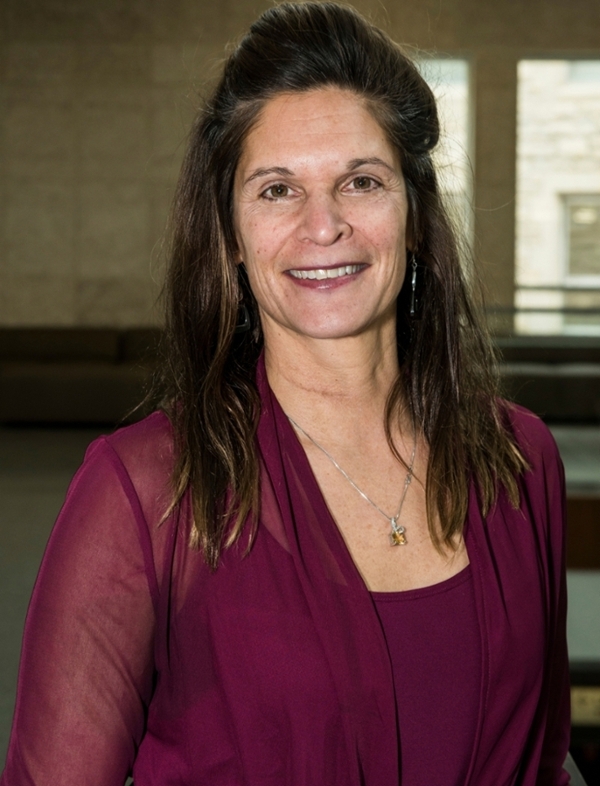
Lalita Bharadwaj is committed to working with Indigenous people to co-create solutions to resolve the inequity in the provision of safe drinking water supplies in our country. Through strong partnerships with Indigenous communities her scholarly work in the area of Collaborative, Interdisciplinary Community-Engaged Scholarship, has provided learning opportunities for university and local students, facilitated interdisciplinary research collaborations and helped build research capacity at the local and university level. Dr. Bharadwaj leads the Safe Water for Health Research Team whose goals are to generate the critical knowledge necessary to inform evidence-based decisions about water policy to promote the health of Indigenous, rural and remote populations regionally and globally.
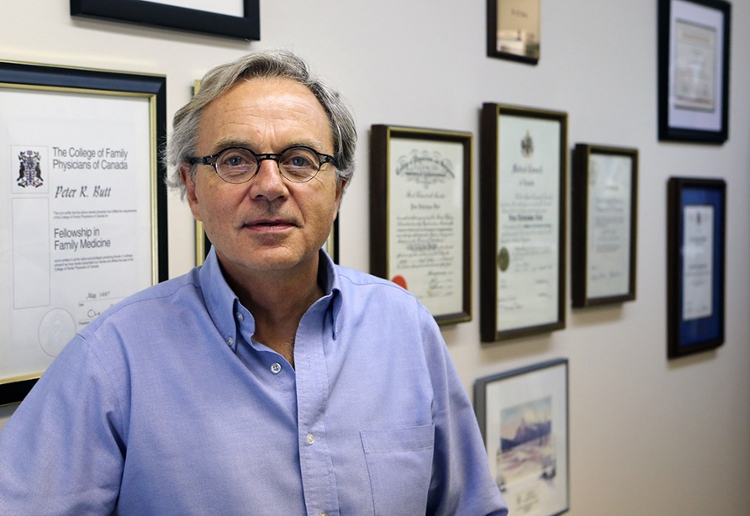
Dr. Peter Butt is a graduate of McMaster University and a Certificant and Fellow with the College of Family Physicians of Canada. He is an Associate Professor in the Department of Family Medicine at the University of Saskatchewan in a position dedicated to Addiction Medicine, and serves as a consultant to Mental Health and Addictions in the Saskatoon Health Region. National committee work included the National Alcohol Strategy Advisory Committee, chair of the Canadian Alcohol Low Risk Drinking Guidelines Expert Advisory Group, co-chair of the Standard Drink Label Working Group, and member of the National Recovery Advisory Committee for the Canadian Centre on Substance Abuse; and physician lead on the Alcohol Screening, Brief Intervention and Referral project for the College of Family Physicians of Canada. Provincially he is the physician lead on the Saskatchewan provincial “Take Home Naloxone”project, chairs the Opioid Advisory Committee for the College of Physicians and Surgeons of Saskatchewan, and serves on the Health Canada - First Nation Prescription Drug Abuse Initiative.
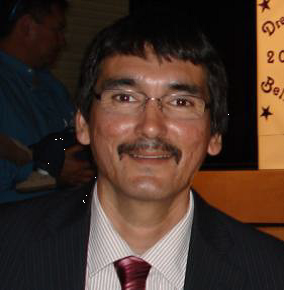
Duane Favel was born and raised in the historical Métis community of Ile-à-la-Crosse. He received his Bachelor of Education from the University of Saskatchewan and went on to teach for the Greater Saskatoon Catholic schools for 15 years. He has served as the Director of Research for the Northwest Saskatchewan Métis Council. He is fluent in both Cree and English and has knowledge of cross-cultural issues. He is very involved in community activities, with service in roles including Mayor of Ile-a-la-Crosse, a board member of the Health Services Utilization and Research Commission and a member of the Aboriginal Advisory Board with Saskatchewan Arts. His long term vision is to have safe, healthy, stable and sustainable communities in northern Saskatchewan.
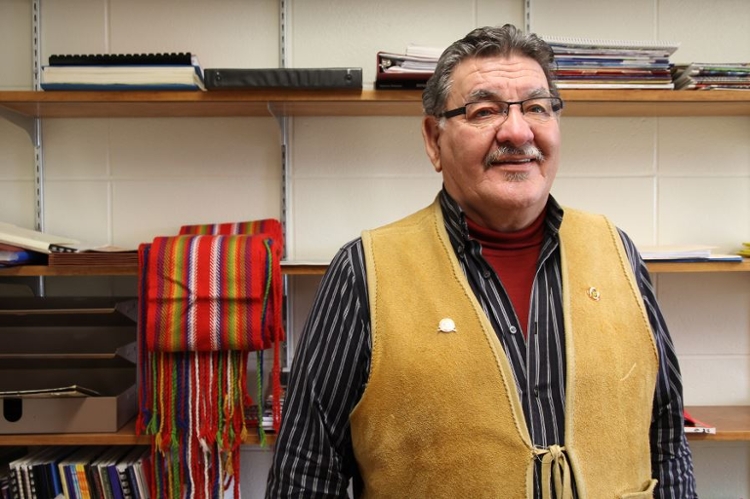
Norman Fleury is a proud Michif who was raised in St. Lazare, Manitoba. He has been greatly influenced by his mother, Flora Fleury (nee Leclerc), over her 108 year lifespan which gave her a long time to pass her language and cultural traditions, including storytelling, to her son. She was widowed and raised her nine children alone through small-scale farming and other harvesting activities that helped her provide for her family. A Michif language expert, Norman has provided many translations for the Gabriel Dumont Institute and other Michif language groups. He is currently a Special Lecturer for the College of Education, University of Saskatchewan.
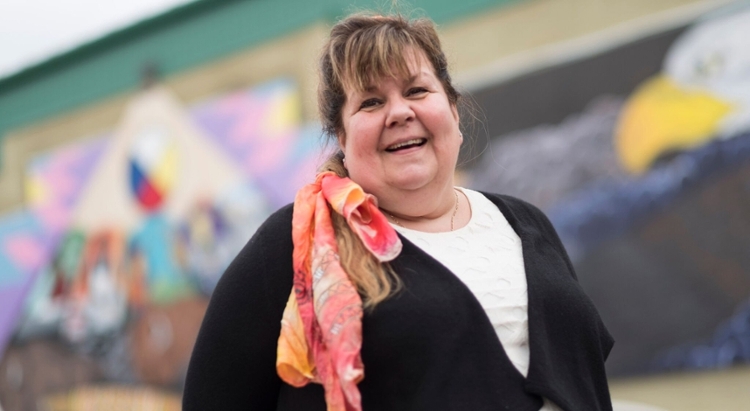
Alexandra King, MD, FRCPC, Nipissing First Nation (Ontario). She is the inaugural Cameco Chair in Indigenous Health and Wellness, an innovative position concerned with both underlying health determinants, intersectionality and end manifestations. As an Internal Medicine Specialist, she is ideally positioned to undertake this challenge using a Two-eyed Seeing approach using both Indigenous and Western healing approaches. Her particular clinical focus on HIV/AIDS, hepatitis C (HCV) and HIV/HCV co-infections represents one critical health outcome consequent to colonialism; there are many others. She works in reconciliation, healing, wellness, and wholistic care – as determined by various levels, such as the individual, family, community and nation.
In addition to a passion for Indigenous health and wellness research, Dr. King is highly invested in teaching and mentorship. She does both formally and informally, creating safe learning environments for multi-directional capacity strengthening. This includes curriculum development, course design and delivery, and learner supervision (both student and community).
She is a Principal Investigator on various CIHR research grants related to Indigenous people and wellness in the areas of drug use, HIV, HCV and co-infections. Other research interests include Indigenous wellness more generally, rural/remote health services, peer navigation/support, land-based cultural healing, and Indigenous research ethics.
She serves on many local and national initiatives, including the Heart & Stroke Heart Failure Council, CanHepC, CTN Health for People Who Use Drugs Working Group (co-lead), and CHARAC.
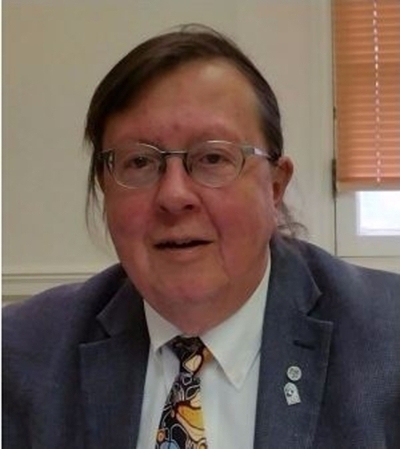
Dr. King is a member of the Mississaugas of the New Credit First Nation. He completed a Ph.D. in polymer chemistry at McGill University in Montreal and fellowships at the Weizmann Institute of Science in Rehovot, Israel, and the Meakins-Christie Laboratories at McGill University. He has been a guest professor at several prestigious universities including the University of Freiburg (Germany), the University of São Paulo (Brazil), the University of Bern (Switzerland) and the University of Auckland (New Zealand).
He has held faculty positions at the University of Alberta, where he was an Alberta Heritage Foundation for Medical Research (AHFMR) Senior Scholar in the Pulmonary Medicine Division of the Department of Medicine. Recently, he had a faculty appointment at Simon Fraser University where he co-developed a course on Indigenous health in Canada and supervised graduate students and other trainees in related endeavors. Dr. King also served as Scientific Director of CIHR's Institute of Aboriginal Peoples' Health (CIHR-IAPH). He was instrumental in leading CIHR in the development of a national health research agenda aimed at improving wellness and achieving health equity for First Nations Peoples, Métis, and Inuit in Canada.
His areas of research interest include respiratory health issues among Indigenous peoples, health service delivery to vulnerable populations, the interaction of education and health, airborne disease transmission and chronic obstructive lung diseases. He is the author of some 200 scientific papers and has supervised some 50 health research trainees. His international Indigenous health interests include improving Indigenous health through workforce development and provision of culturally appropriate care and developing Indigenous health indicators to monitor progress in programs aimed at achieving wellness and health equity.
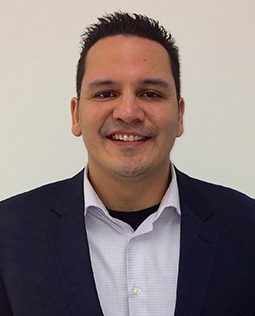
Neal was the first First Nations graduate of the Johnson Shoyama Graduate School of Public Policy, University of Saskatchewan, Masters in Public Administration in 2011. He is also the first person of Indigenous ancestry to hold the office of the director in population and public health with the former Saskatoon Health Region. He was selected as one of Saskatchewan’s Future 40 in 2017.
He is a co-founder of the Wicihitowin Aboriginal Engagement conference in Saskatoon community together to work towards Indigenous inclusion in human services and the economy. Neal's leadership has led to increasing the infant and childhood immunization rates to close the gap between the most affluent neighbourhoods and the inner city neighbourhoods, and also addressing safe housing issues in a new way within the scope of the Public Health Act. Thanks to this leadership, we have moved further along in the past five years than ever before in addressing inner city health disparities.
Neal is changing the culture of how this health care team meets client needs, and how we manage public health services in our region.
Neal is also a leader in changing our health care culture through his work with cultural competency. He has a quiet, gentle way of bringing forward difficult conversations that impact First Nations and Metis peoples today in the health care system and beyond. Through this he leads us to reconciliation and definitive action, and supports team work at many levels. He was honoured this year by appearing on the cover of Relevance magazine, a publication targeted towards young people looking for career options.
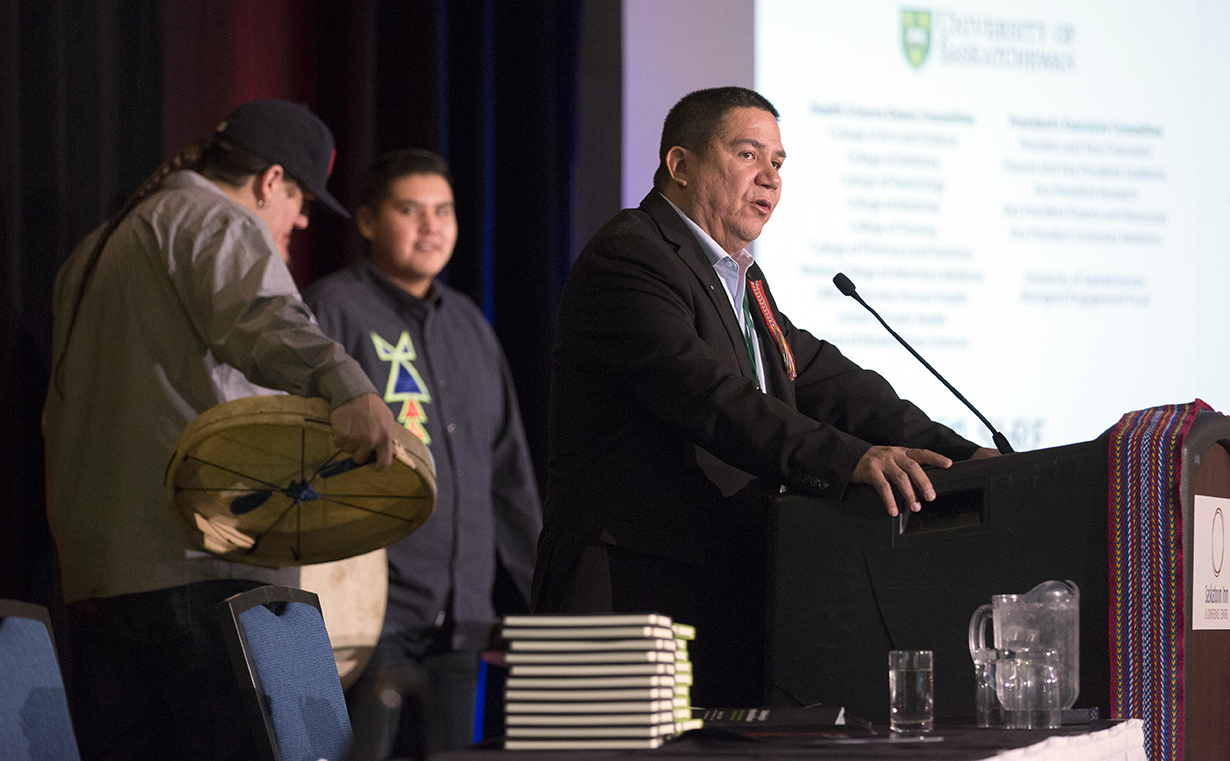
Gabe Lafond is Métis and was born and raised in Green Lake, Saskatchewan. Gabe was recently appointed as the Executive Director, First Nation and Métis Health within the Saskatchewan Health Authority. Previous, Gabe was Director for the Representative Workforce and First Nation and Métis Health for the Saskatoon Health Region for eight years.
Gabe’s career spans diverse fields which include leadership positions in Métis Nation Governments, public and non-profit sectors. Gabe is actively involved in the community participating in various committees focused on improving the health and well-being of others and volunteers with organizations such as Saskatoon Aboriginal Employment Partnership and Saskatoon Chamber of Commerce Aboriginal Opportunities committee.
Gabe takes great pride in his accomplishments for Indigenous communities and organizations he represents. Currently he resides in Saskatoon with his wife and three children.
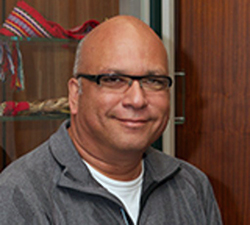
Dr. Barry Lavallee is a member of Manitoba First Nation and Métis communities, and is a University of Manitoba trained family physician specializing in Indigenous health and northern practice. His clinical work has focused on the health and healing needs of First Nation and Métis communities. He has a Masters of Clinical Sciences from the University of Western Ontario. His research and clinical areas are chronic diseases, transgenerational trauma, impact of colonization on Indigenous communities and international Indigenous health. He is the Director of Student Support and Education for the Centre for Aboriginal Health Education, University of Manitoba and Indigenous Health UGME Curriculum Lead for the University of Manitoba.
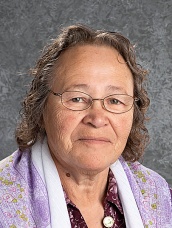
Her English name is Mary Lee. She is from Chitek Lake First Nation, northern Saskatchewan. She has five children, three girls and two boys. Together those children have given her twenty-three grandchildren and four great grandchildren, two boys and two girls.
Her mother spoke only Cree. From a very early age, she instilled in her children the value of our culture and language. She had two daughters and five sons. All of them speak Cree and have gone to ceremonies like the Sun Dance and the Sweat Lodge since they were little children. She shared with them the teachings and meanings of these ceremonies. She also shared her teachings with women in the community, because she was given the gift of helping women in their journey to becoming mothers. In English, you would call her a midwife. Many of her teachings to Mary Lee were about the sacredness of motherhood and how to help women raise healthy children in the world. She retained these teachings because her life was not interrupted by residential school. So she was able to parent differently, with the knowledge that was given to her as a child. That is why Mary Lee says all of her teachings, everything she knows, came from her.
Everything Mary Lee’s mother learned came from her grandmother, who raised her when both of her parents died. So she learned everything from two generations before her. She says she is fortunate; because of her great grandmother and mother, she can share the teachings that at one time were known to all Cree women, like the teepee teachings and teachings on the value of women. In honor of Cree women everywhere, she will share these teachings with you.
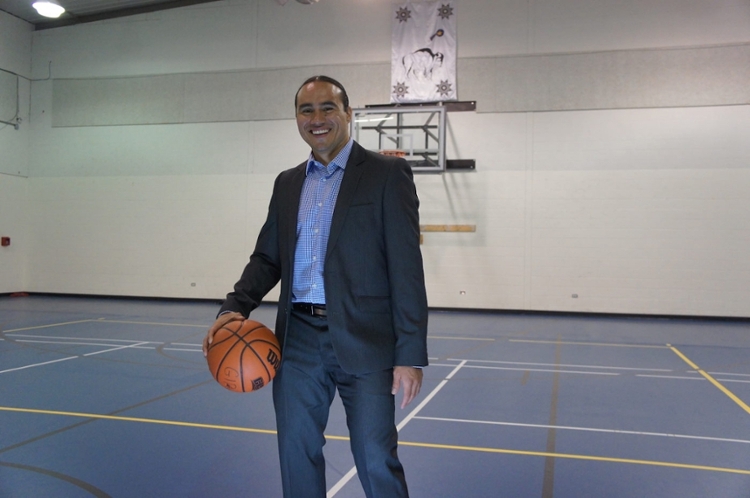
Michael grew up in a community surrounded by substance abuse, yet he has been committed to abstaining from drugs and alcohol his whole life. Michael also knows how to ‘Empower Youth’ and encourage them to choose to ‘Live Substance Free.’
As team captain, Michael led the U of S Huskie Men’s basketball team to its first and only CanWest Conference championship and CIS National Championship in 2010. After that season he played professionally in the International Basketball League.
Michael grew up in the inner city of Saskatoon and understands the importance of giving back. He has passionately shared his motivational story to thousands of youth and adults across Saskatchewan for the past sixteen years. He is the founder of Prime Basketball Development, sharing his wealth of knowledge with youth interested in advancing their abilities on the court. Michael is currently the recreation coordinator at the White Buffalo Youth Lodge, working with inner city youth from the community he grew up in. Michael is proud father who models a healthy life style to his children and countless youth, by remaining drug and alcohol free.
Michael has recently competed for team Saskatoon in the Fédération Internationale de Basket-ball/ International Basketball Federation (FIBA) 3X3 World Tour, where he helped lead the team to win the America’s Qualifier. His team advanced to the World Tour Finals in Sendai, Japan. There, they represented Canada and placed 2nd in the world respectively. The Team was then invited as one of only 6 teams in the world to compete in the FIBA World All Star Tournament held in Doha, Qatar.
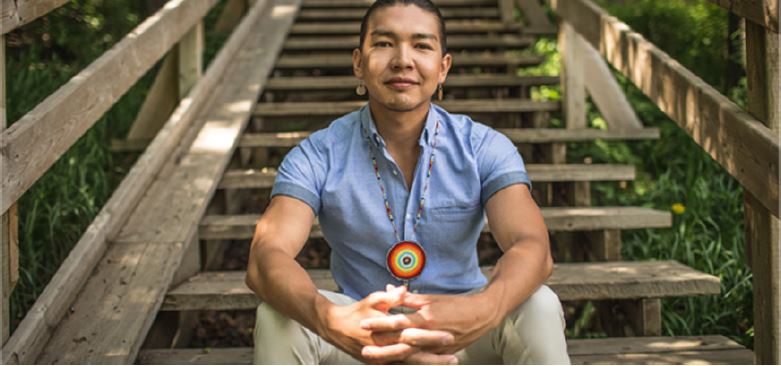
Dr. James Makokis is a proud Cree from the Saddle Lake First Nation in Northern Alberta. James received his Bachelor of Science (B.Sc.) in Nutrition and Food Sciences from University of Alberta, a Masters of Health Science (M.H.Sc.) in Community Nutrition from the University of Toronto, and lastly a Doctorate in Medicine (M.D) from the University of Ottawa. Dr. James Makokis received certification from the Aboriginal Family Medicine Training Program, University of British Columbia.
Dr. James Makokis is an active volunteer and currently serves on several boards including the Waakebiness-Bryce Institute for Indigenous Health at the University of Toronto, and McEwan University’s Indigenous Advisory Council. He was formerly the co-chair of the inaugural Indigenous Wisdom Council of Alberta Health Services, board member of Indspire (formerly the National Aboriginal Achievement Foundation), revived and led the Two Spirit Circle of Edmonton Society, and served in the Indigenous Physicians Association of Canada. James is also the recipient of the 2007 National Aboriginal Achievement Special Youth Award, the highest formal recognition bestowed upon individual from Indigenous communities.
As a doctor, national presenter, and proud member of the LGBTQ2S community, James offers a truly unique perspective when audiences hear his story. Not only are his stories humourous and insightful, they highlight the high calibre of his character and celebrate triumph over adversity.
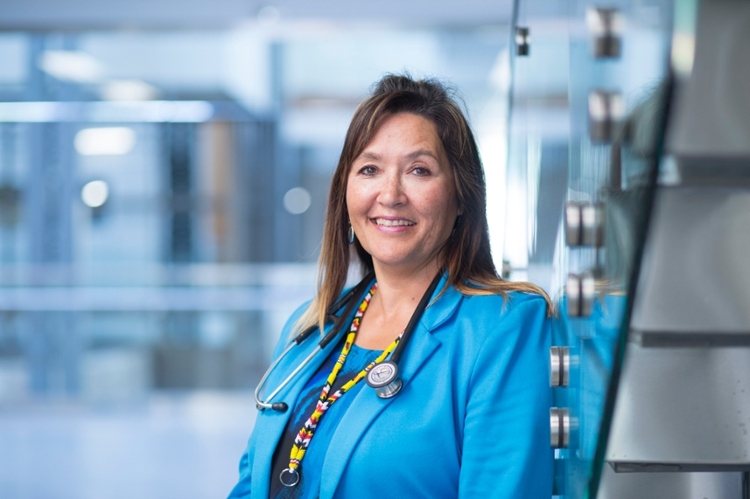
Veronica McKinney, MD, CCFP Dr. Veronica McKinney is a Cree/Métis woman from Saskatoon, Saskatchewan. Veronica has over 25 years experience working in health care in several Aboriginal communities across Canada. Dr. McKinney was the Site Director for the Aboriginal Residency Program, University of British Columbia, and is currently, the Director of Northern Medical Services, a Division of the College of Medicine, University of Saskatchewan. Dr. McKinney is a sought after speaker because of her knowledge, experience and passion for Aboriginal Health. She believes strongly in her traditional cultural teachings and is a strong advocate for Aboriginal people’s health, having witnessed and experienced the inequities firsthand.
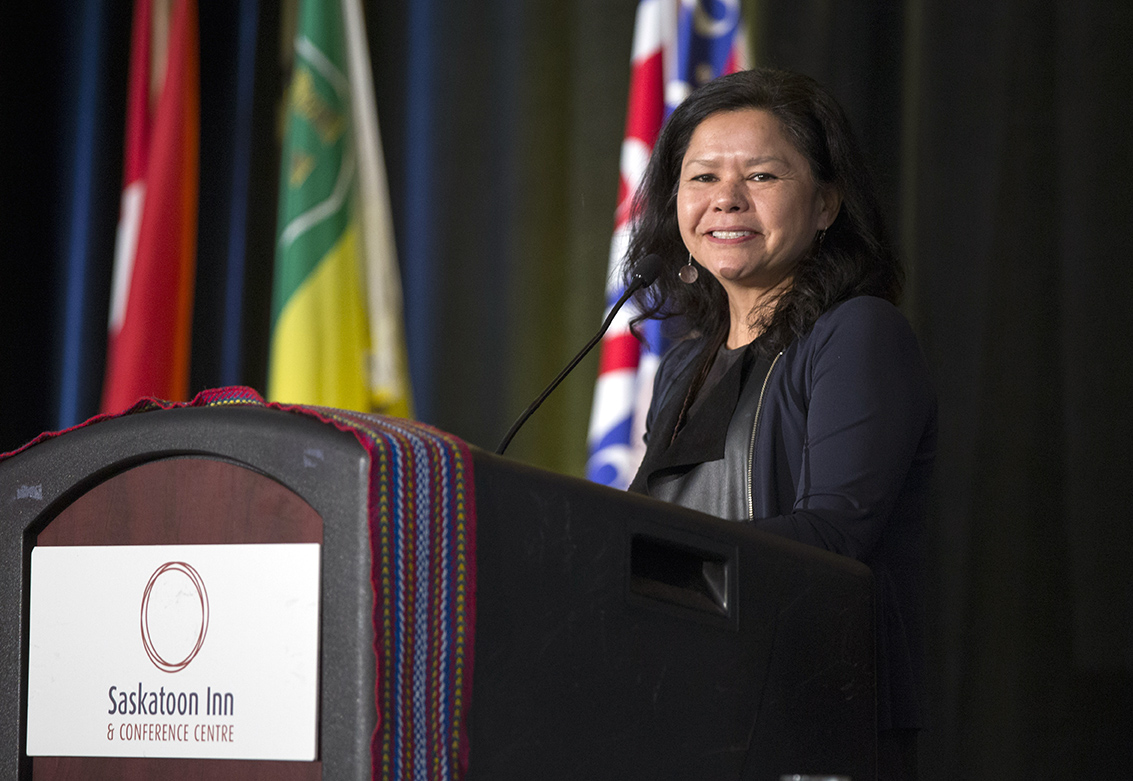
Dr. Jacqueline Ottmann is Anishinaabe (Saulteaux), former elementary and high school teacher and principal, now a scholar. While at the University of Calgary, she was coordinator of the First Nations, Métis, Inuit undergraduate teacher education program, and director of Indigenous Education Initiatives within the Werklund School of Education (WSE). She also co-chaired the WSE Indigenous Strategy and alongside the provost, the university-wide Indigenous strategy.
As of October 1, 2017, Jacqueline became Professor and Vice-Provost Indigenous Engagement at the University of Saskatchewan. Ottmann has been recognized as an international researcher, advocate, and change-maker whose purpose is to transform practices inclusive of Indigenous leadership, methodologies and pedagogies. Jacqueline is driven to create schools and communities that foster a deeper sense of belonging and appreciation for Indigenous peoples—their histories, stories, ways of knowing and being.
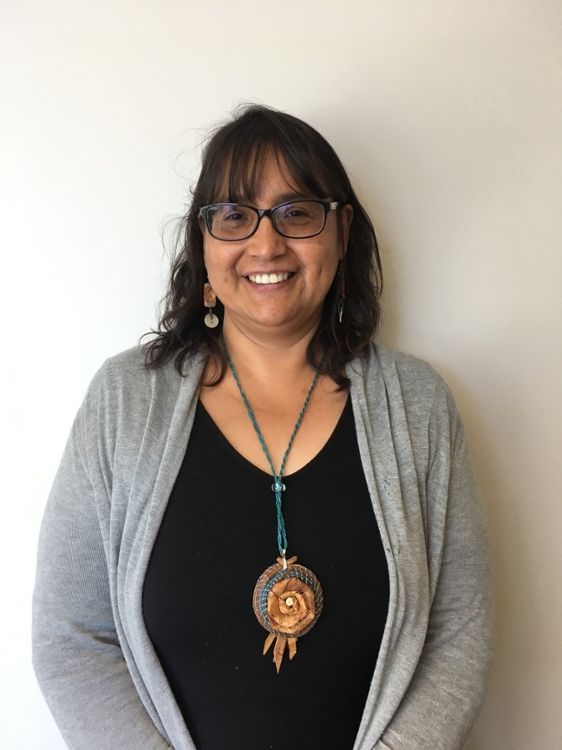
Norma Rabbitskin is a fluent Cree speaker from Big River First Nation, Saskatchewan. She is currently employed by Sturgeon Lake First Nation as the senior health nurse, overseeing primary care, community health and home care program. She volunteers as a Board member for Canadian Aboriginal AIDS Network and All Nations Hope Network (Regina). Her passion is being at service in developing community based programs that are strongly grounded in traditional healing practices, parenting skills, acquiring traditional life-skills, teachings from Elders/Knowledge keepers while maintaining the vitality of language in knowledge building and achieving wellness in one’s life.
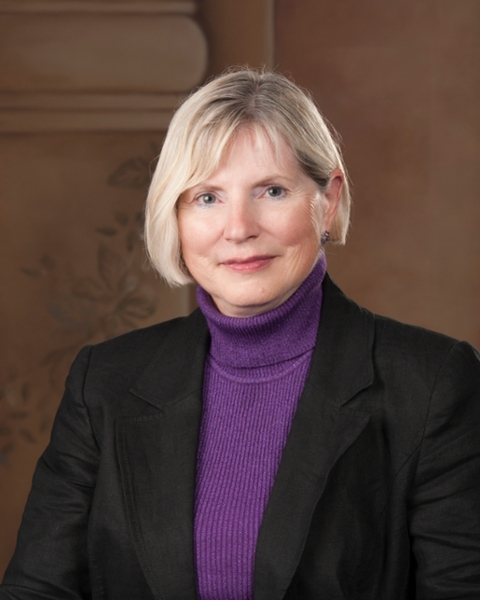
Dr. Vivian R Ramsden, a Registered Nurse, is Professor & Director of the Research Division, Department of Academic Family Medicine at the University of Saskatchewan. Her background spans both critical care in acute care settings and primary health care in urban, rural and Indigenous communities both in Canada and South India. Dr. Ramsden is a passionate advocate of authentic engagement; thus, her research interests are in: participatory health research and evaluation; primary health care; patient-oriented research; and, prevention & management of chronic diseases. She is an Honorary Member of the College of Family Physicians of Canada.
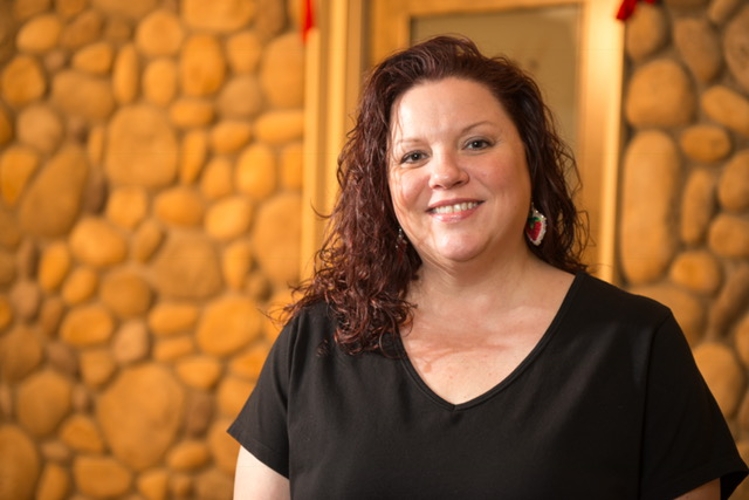
Dr. JoLee Sasakamoose is an Anishinabe (Ojibwe) from M’Chigeeng First Nation in Ontario. She is an Assistant Professor in Educational Psychology and Counselling at the University of Regina. She serves as the founding Director of the Health Advocacy and Research Training program that works in partnership with the Fred Sasakamoose Indigenous Youth Leadership and Wellness Program. She serves as research affiliate with the Indigenous Peoples Health Research Centre and as a methodologist with the Saskatchewan Centre for Patient Oriented Research.
She utilizes community and participatory-based research approaches with First Nation communities and peoples. From a strengths-based, trauma informed decolonizing lens, her research engages Indigenous peoples in defining health and healthy communities; explores the intergenerational effects of historical trauma and traditional healing methods as protective factors with Indigenous peoples; utilizes neurodecolonization, contemplative mind body practices and Sîtoskâkewin© expressive therapies in the promotion of health and wellbeing.
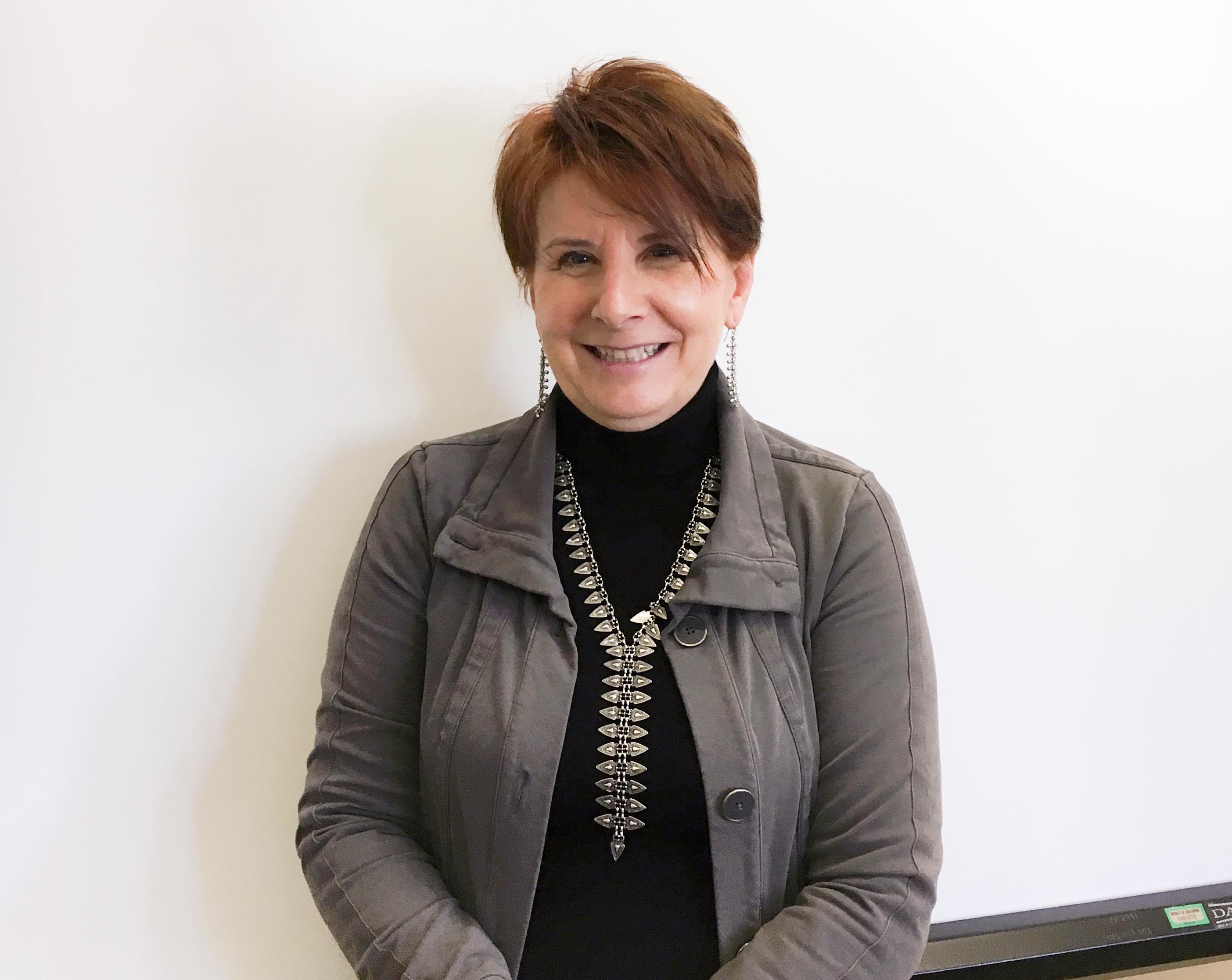
Caroline is a medical anthropologist with particular research interests in Indigenous health and social justice, and the challenges faced by women who are marginalized. She earned her MA at the University of California (Berkeley), and her PhD at McGill University. She has been a Fulbright Scholar and Visiting Fellow at Harvard, and she completed a postdoctoral fellowship at McGill. In 2004, Caroline returned to her home province of Saskatchewan to join the Indigenous Peoples’ Health Research Centre—a collaborative initiative involving the First Nations University of Canada, the University of Regina and the University of Saskatchewan. In 2012, Caroline became a member of Faculty at the Department of Psychiatry at the University of Saskatchewan.
Event Videos
|
Opening Ceremony |
Plenary 2.0 Reciprocal Research Partnerships — Perspectives on Promising Practises Dr. Jacqueline Ottmann, Dr. Malcolm King, Dr. Vivian Ramsden and Norma Rabbitskin |
Plenary 3.0 Healthy Lifestyle and Mindset Michael Linklater |
| Reflections on Day 1 | Plenary 4.0 Promising Approaches to Wellness — Partnerships to Promote Health and Healing Dr. Jo Lee Sasakamoose |
Plenary 5.0 Access to Medical Care Dr. Alexandra King and Sharon Clarke |
| Plenary 6.0 Chronic disease, Indigenous Health and Settlers Canada Barry Lavallee |
Reflections on Day 2 |
Sponsors
University sponsors
College of Pharmacy and Nutrition
School of Rehabilitation Science
Western College of Veterinary Medicine
Saskatchewan Indigenous Mentorship Program
University of Saskatchewan Conference Fund
University of Saskatchewan Presidents' Executive Committee

